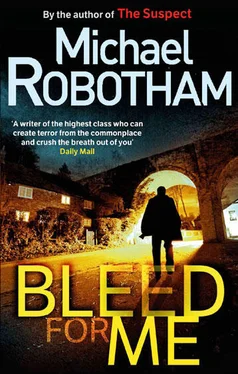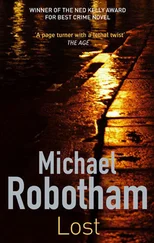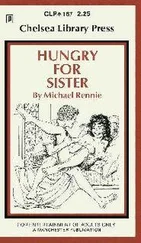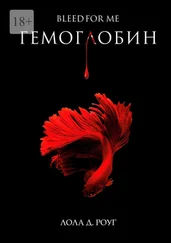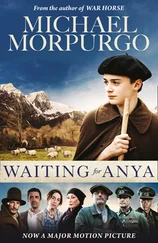Julianne translates the oath and nods to Judge Spencer, who addresses the jury.
‘Ladies and gentlemen, I apologise for the delay this morning but there were other cases for mention and certain points of law that had to be addressed. This witness requires a translator because his English is limited. I know this makes it more difficult and time-consuming, but both Miss Scriber and Mr Hurst have agreed to keep their questions short and to give the witness extra time to answer.’
Miss Scriber QC is a pinch-faced woman with pencil-thin eyebrows and a body rendered featureless by her black robes. She asks Marco for his full name and age and then asks where he was born. Occasionally Marco answers without the need of Julianne, but mostly he waits for her to translate each question.
Over the next twenty minutes he reveals how his father, Vasily Kostin, had been a Soviet ‘Liquidator’ sent to clean up the Chernobyl Nuclear Plant after the disaster in 1986. He drove a bus and helped evacuate people from the town of Pripyet. On one of these journeys he met Olga and they married two years later. Their first child Oles was born without a brain and lived for only a few hours. Then came Marco and his sisters, Vira, eleven, Aneta, six and Danya, four.
The family arrived in the UK fourteen months ago and spent two months in an immigration detention centre before being released into the community. The local authority provided them with housing and vouchers for food and clothing. Marco enrolled at a language school and the family prayed at a local church.
‘Why did you come to the UK?’ asks Miss Scriber.
‘We wanted to start a new life.’
‘What were you told?’
‘They said we couldn’t stay, but we were lodging an appeal.’
Miss Scriber brings Marco to the week of the fire.
‘How well do you know Stacey Dobson?’
‘She is a friend.’
‘Is she your girlfriend?’
Marco dips his eyebrows. ‘I see her sometimes at the bus stop. We catch the same bus. She jokes about my English.’
‘Did she flirt with you?’
Marco looks at Julianne for a translation of ‘flirt’.
‘She is a nice girl. Friendly. I have not met many English girls.’
Marco reveals how they spent a Saturday afternoon together. They went to the movies and then to an amusement arcade. Later he walked her home.
‘Did you kiss her?’
‘Yes.’
‘Did you have sex with her?’
Marco lowers his gaze and murmurs something. Embarrassed.
Miss Scriber asks the question again.
‘Yes.’
‘Did you abduct Stacey Dobson?’
‘No.’
‘Did you sexually assault her?’
‘No.’
Miss Scriber glances at her notes. ‘Have you ever met Gary Dobson?’
‘Yes.’
‘When did you meet him?’
‘He was at the police station when I was taken there. He shouted at me.’
‘What did he shout?’
‘Bad words.’
‘Do you remember those words?’
‘He said: “You’re dead! You’re fucking dead!”’
‘Is the man who uttered those words in the court today?’
Slowly Marco raises his right arm and points towards Gary Dobson, who sits a little straighter in the dock with a crazy beaming smile on his face. There are cheers from the gallery. Judge Spencer calls for silence. For a moment the jury seems more interested in what’s going on above them, but the first question about the fire focuses their attention again.
Marco describes having dinner with his family. His mother had made his favourite meal and they said a prayer because Marco was home after spending the night in a police cell. After dinner Marco read a bedtime story to his two youngest sisters and turned off the light in the girls’ bedroom.
He slept at the top of the house in a small loft room accessed by a narrow set of stairs. Photographs of the house and a floor plan are projected on to a white screen. Marco points out each of the bedrooms. His sisters slept on the first floor at the rear of the house. His parents were in the main bedroom overlooking the street.
He was woken just after midnight by the sound of breaking glass. At first he thought someone had shattered a bottle on the footpath outside. He looked out the window and saw a white Ford van in the street. Two men were running. The door opened. The interior light showed a third man behind the wheel.
‘Did you recognise this man?’
‘Yes. I had seen his photograph in the newspapers.’
‘Do you know this man’s name?’
‘Novak Brennan.’
‘Is he in the court?’
Again Marco points to the dock. Novak Brennan looks completely relaxed, with one leg propped on the other at right angles, revealing a pale shin beneath his trouser cuff.
‘What did you see next?’
‘The van drove away.’
‘And then?’
Marco reaches for a glass of water, spilling a few drops. He mops up the spill with his sleeve, concerned that he’ll get into trouble. The judge tells him not to worry.
Miss Scriber repeats her question. ‘What did you do after you saw the van drive away?’
‘I went back to my bed and closed my eyes, but I smelled smoke. I got out of bed and opened my door, but there was smoke everywhere. I had to crawl on the floor . . . feel my way down the stairs. I saw flames in the hallway near the door. We could not get out this way.’
‘Where were your sisters?’
‘I heard them coughing. They were in a bedroom next to Mama and Papa. I could hear windows breaking . . . my mother screaming.’
‘What did you do next?’
‘I crawled to my sisters’ room. I couldn’t find them. I kept calling and feeling for them. Aneta was under the bed. Danya beneath the window. I carried them. I told them not to breathe.’
‘What about Vira?’
‘She was in the hallway. I don’t know how she got out. She was calling for Mama and Papa but I could not hear them any more.’
Marco raises his eyes. The courtroom is so quiet I can hear the tremor in Julianne’s voice as she translates. Marco recounts how he climbed back to the loft bedroom carrying his youngest sisters. He tried the window, but it could only be wound open six inches. Marco held up his sisters so they could breathe. They took turns but it wasn’t enough. Vira panicked and tried to run downstairs.
‘I heard her fall,’ Marco says, the words catching wetly in his throat. ‘She did not answer me when I called to her. I hope she died with no pain . . .’
A juror sobs. There’s nowhere to hide from the raw, numbing emotion in Marco’s voice. He describes how he used a suitcase to bash at the window, swinging it upwards into the reinforced glass until the hinges broke and he kicked it clear. He wanted to lift Danya out on to the roof, but the pitch was too steep.
Instead he pulled the bed beneath the window and climbed out. Leaning back through the hole, he told Danya to lift Aneta, the four-year-old, so he could pull her up . . . but she wasn’t strong enough.
‘She tried, but she couldn’t breathe. She couldn’t see . . . I couldn’t pull them out. I couldn’t go back . . . Aneta called to me. Danya was on her knees. They couldn’t breathe.’
Marco gulps a breath as if trying to help them still. Judge Spencer asks him if he’d like a break.
Glancing along the row of seats in the gallery, I notice a woman sitting alone, head bowed, holding something in her lap. She’s dressed in layers of mismatched clothes with clumpy shoes and woollen tights. As she rocks gently back in her seat, I see that she’s clutching a battered teddy bear with a ribbon around its neck. A mascot.
Someone’s mother, I think, perhaps one of the defendants’. Brennan’s mother died of a drug overdose, according to Ruiz, yet I can see a fleeting resemblance in the shape of her face and her narrow lips.
Читать дальше
